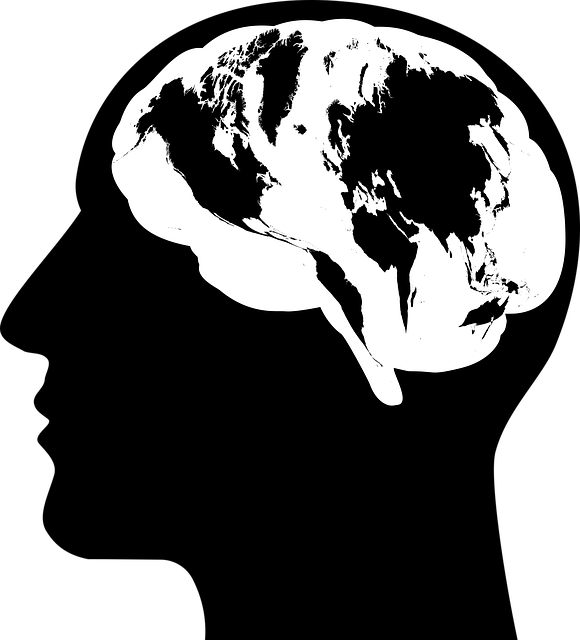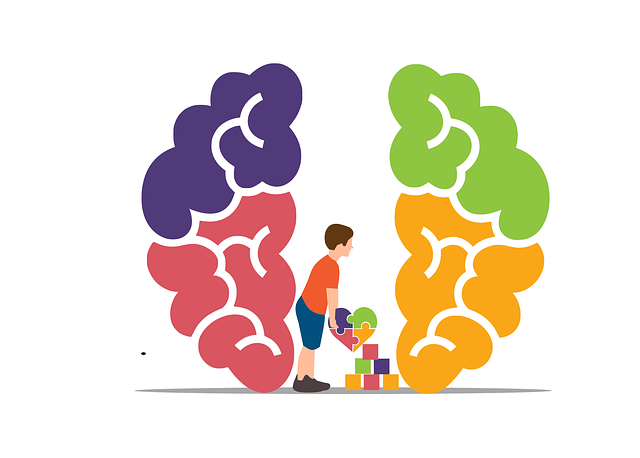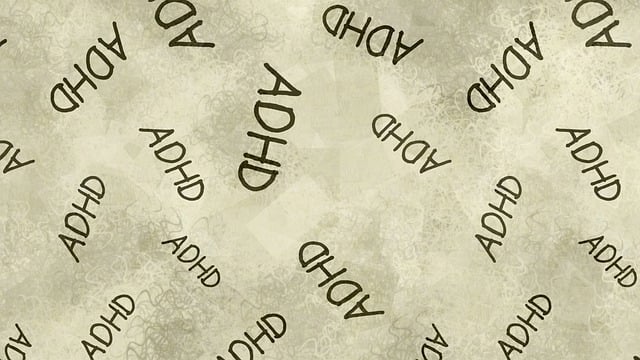Golden Cognitive Processing Therapy (GCPT) is a transformative approach to healthcare training, emphasizing cultural sensitivity for diverse populations. Integrating GCPT into programs like Mental Wellness Podcast Series Production and Risk Assessment, along with interactive workshops from organizations like the Stress Management Workshops Organization, enhances provider skills in navigating complex cultural situations. This leads to improved patient interactions, satisfaction, and ultimately better mental wellness outcomes, especially through Community Outreach Program Implementations. Overcoming resistance requires highlighting GCPT's benefits, including structured training that delves into social skills and resilience-building for healthcare providers, fostering an inclusive healthcare environment. Evaluation involves assessing changes in provider attitudes, behaviors, and patient outcomes, as well as organizational shifts, demonstrating the wide-reaching impact of cultural competency training.
Healthcare provider cultural competency training is essential in today’s diverse society. Understanding cultural competency improves patient care, reduces disparities, and fosters inclusive healthcare environments. This article explores key aspects, including the effectiveness of Golden Cognitive Processing Therapy as an innovative approach to addressing cultural barriers. We’ll delve into training strategies, implementation challenges, and methods for measuring the impact of such programs, providing a comprehensive guide for healthcare professionals.
- Understanding Cultural Competency in Healthcare: Why It Matters
- Golden Cognitive Processing Therapy: An Effective Approach
- Training Strategies for Healthcare Providers
- Overcoming Barriers to Implementation
- Measuring and Evaluating the Impact of Cultural Competency Programs
Understanding Cultural Competency in Healthcare: Why It Matters

Cultural competency in healthcare is a vital aspect that goes beyond basic patient care. It involves understanding and appreciating diverse cultural backgrounds, beliefs, and values to deliver effective treatment. In today’s diverse societies, healthcare providers must be equipped to navigate complex cultural landscapes, ensuring every patient receives respectful and sensitive care. This is where Golden Cognitive Processing Therapy (GCPT) comes into play as a powerful tool for enhancing cultural competency.
GCPT offers valuable insights into how different cultures process information and make decisions, helping professionals adapt their communication strategies. By recognizing these cognitive differences, healthcare providers can improve their interactions with patients from various ethnic, racial, or cultural groups. Moreover, incorporating GCPT principles into training programs, such as the Mental Wellness Podcast Series Production or Risk Assessment for Mental Health Professionals, can enhance cultural sensitivity. Effective communication strategies are key to building trust and ensuring patient satisfaction, ultimately contributing to improved mental wellness outcomes.
Golden Cognitive Processing Therapy: An Effective Approach

Golden Cognitive Processing Therapy (GCPT) has emerged as a powerful tool within healthcare provider training, particularly for enhancing cultural sensitivity and improving patient outcomes. This therapeutic approach focuses on identifying and modifying cognitive distortions that may impact individuals from diverse cultural backgrounds. By understanding and addressing these cognitive processes, healthcare providers can offer more personalized and effective treatment. GCPT encourages professionals to explore their own biases and beliefs, fostering a deeper level of cultural awareness.
Through interactive sessions, role-playing, and group discussions, Stress Management Workshops Organization often incorporates GCPT into their training programs. This method allows participants to develop skills in navigating complex interpersonal dynamics and providing culturally sensitive care. By integrating the principles of GCPT into mental healthcare practice, professionals can better address the unique needs of diverse communities, ensuring every patient receives respectful and compassionate treatment. Additionally, this therapy’s emphasis on cognitive flexibility prepares providers for the challenges presented by Community Outreach Program Implementations, enabling them to adapt their practices to different cultural contexts.
Training Strategies for Healthcare Providers

Healthcare providers’ cultural competency training should employ diverse strategies to ensure maximum impact and engagement. One effective approach is incorporating Golden Cognitive Processing Therapy (GCPT) techniques, which enhance critical thinking and decision-making skills in complex, culturally diverse scenarios. By mastering GCPT, healthcare professionals can navigate sensitive situations with enhanced resilience and improved patient outcomes.
Additionally, designing Mental Health Education Programs that focus on building resilience among providers is paramount. These programs should include burnout prevention strategies tailored to the unique challenges faced by healthcare workers. Through interactive workshops, peer support networks, and regular self-care practices, providers can develop the mental fortitude necessary to deliver quality care in diverse settings, thereby fostering a more inclusive and compassionate healthcare environment.
Overcoming Barriers to Implementation

Implementing cultural competency training within healthcare settings can be a complex process, often hindered by various barriers. One significant challenge lies in overcoming resistance from healthcare providers themselves. Many professionals may question the relevance or immediacy of such training, especially if they perceive their current skills as sufficient for delivering patient-centered care. To address this, educational institutions and healthcare organizations must emphasize the benefits of cultural competency, highlighting its role in improving patient outcomes and fostering better interactions between healthcare providers and diverse patient populations.
Additionally, effectively integrating cultural competency training requires a structured approach that goes beyond surface-level awareness. It involves delving into complex topics like Golden Cognitive Processing Therapy, which can facilitate emotional healing processes and promote positive thinking. Social Skills Training is another essential component, as it equips healthcare providers with the interpersonal skills needed to navigate diverse cultural contexts, ensuring they can communicate effectively and sensitively with patients from different backgrounds.
Measuring and Evaluating the Impact of Cultural Competency Programs

The impact of cultural competency training in healthcare is multifaceted and requires careful measurement to ensure effectiveness. Evaluating these programs involves assessing both qualitative and quantitative data to gauge improvements in provider attitudes, behaviors, and patient outcomes. One effective method is using self-assessment tools and feedback mechanisms where participants reflect on their learning experiences and apply new skills in clinical settings. This introspective approach, coupled with peer review and supervisor observation, provides valuable insights into the practical implementation of cultural competency principles.
Furthermore, measuring success can extend beyond individual providers to institutional levels. Tracking changes in healthcare organization policies, resource allocation, and service delivery strategies over time can demonstrate the broader impact of cultural competency training. For instance, increased adoption of Golden Cognitive Processing Therapy (GCPT) techniques within diverse patient populations may indicate enhanced mental wellness journaling exercise guidance and confidence boosting among healthcare workers. Similarly, resilience-building activities stemming from cultural competency programs could lead to improved patient satisfaction and adherence to treatment plans.
Cultural competency training is no longer a choice but an imperative for healthcare providers. By understanding and embracing diverse cultural perspectives, as highlighted by effective approaches like Golden Cognitive Processing Therapy, professionals can deliver more personalized and effective care. Implementing comprehensive training strategies and overcoming barriers will lead to positive changes in patient outcomes and overall healthcare satisfaction. Measuring the impact of these programs is crucial to ensure continuous improvement, fostering a more inclusive and culturally sensitive healthcare environment.














